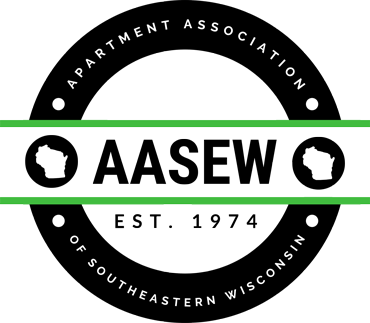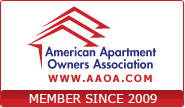Tristan is the Executive Vice President and shareholder with the law firm of Petrie+Pettit and focuses his practice in the area of landlord-tenant law representing landlords and property management companies throughout Wisconsin.
Call us: (414) 276-2850
City of Milwaukee's "Residential Rental Certificate Program" Is Unveiled
Posted by Tristan R. Pettit, Esq. in Legislation, DNS, City of Milwaukee, Residential Rental Inspection (RRI) Program / Mandatory Rental I / Comments
Well I have finally been able to get my hands on a preliminary copy of the city of Milwaukee's proposed mandatory rental inspection ordinance. The ordinance is sponsored by Alderman Kovac, Wade, Davis and Hines. The ordinance refers to the proposed program as a "Residential Rental Certificate" program. The program is really just a variation on "landlord licensing" and mandatorty rental inspection programs. I would encourage you to read the enitre proposed ordinance, but I have also set forth the key points below:
- This will be a 5 year pilot program.
- The targeted area includes the UWM area on the city's east side and the Lindsay Heights neighborhood on the city's north side. These areas were selected because the city believes the areas need to be monitored to prevent deterioration. Allegedly these two areas include older housing stock, have a high density of rental properties, have a higher percentage of complaints, and have high tenant turnover. The city feels that frequent inspections of the rental properties in these two areas are needed to maintain safe, decent, and sanitary living conditions.
- Every rental unit in the selected areas must apply for and receive a rental certificate before the owner is allowed to rent out the unit.
- The ordinance includes duplexes and larger multi-unit rental properties. Owner-occupied duplexes are excluded.
- The owner must also complete, sign and submit an application to the city that will include the owner's legal name, the address of the rental property, the owner's phone number, and the owner's date of birth.
- A fee of $85 must accompany each rental unit application.
- Prior to the city issuing a rental certificate the unit will be subject to an internal and external inspection by the Department of Neighborhood Services (D.N.S.).
- DNS will conduct the inspection within 60 days of receipt of the application.
- The owner must notify the tenant at least 2 days in advance of the inspection.
- A fee of $50 will be imposed if DNS is unable to gain access to the unit for inspection.
- If during the inspection DNS finds a "disqualifying violation" (defined as a condition that affects safe, decent and sanitary living conditions or other conditions that violate the city building code, building maintenance code or zoning code) the unit will be issued a 1 year certificate.
- Any violation identified during the inspection must be abated within a reasonable amount of time (to be determiend by DNS).
- If conditions are found that are determined to constitute an imminent danger to health and safety, DNS shall order the condition to be remedied and may limit or prohibit occupancy where approporiate.
- DNS shall reinspect the unit as necessary to determine if any "disqualifying violations" have been remedied. A reinspection fee may be charged.
- If no disqualifying violations are found the unit will be given a 4 year certificate.
- A temporary certificate can be given for up to 30 days if the disqualifying violations do not constitute a hazard to the occupants of the rental and if a plan to correct the violations is submitted and approved by DNS.
- After the certificate expires the owner will be required to renew the certificate and submit to another inspection and pay another $85 fee per unit.
- If after the issuance of a 4 year certificate, DNS determines learns that there is a building or zoning code violation, the 4 year certificate can be revoked and the city can choose to replace the 4 year certificate with a 1 year certificate.
- If at any time after the issuance of a 4 year certificate or a 1 year certificate, DNS determines that there are building or zoning code violations that are critical and constitute an unsafe or unfit condition, the city can revoke the certificate.
- Any violation identified after a certificate has been issued must be abated within a reasonable amount of time (to be determiend by DNS).
- Any person who purchases a rental unit in the targeted areas must apply for a rental certificate and pay the accompanying fee within 30 days of the purchase.
- Any person that sells a rental unit in the targeted areas must notify the purchasor of the property that a residential rental certificate is required by the city.
- An owner that fails to apply for a residential rental certificate will be fined $100 for the first infraction. If the owner fails to respond to a subsequent notices by the city the fine will increase to $150.
- Residential rental inspection fees will be charged against the owner's real estate and will be considered a "special charge."
If you would like to contact your alderman you can find contact information here.




